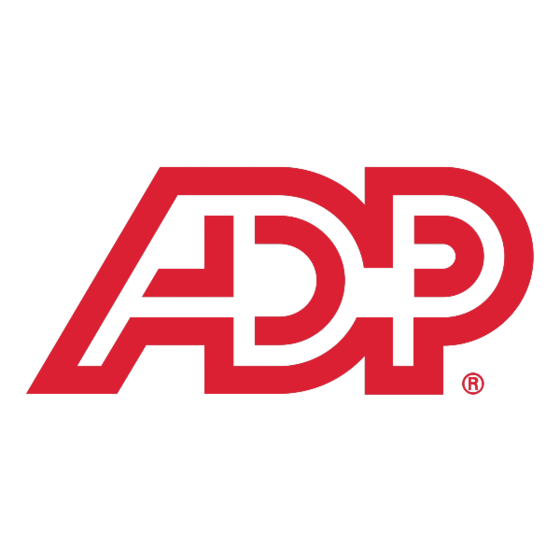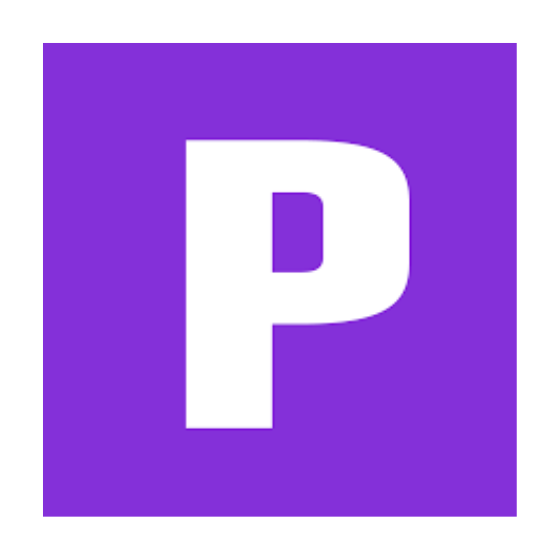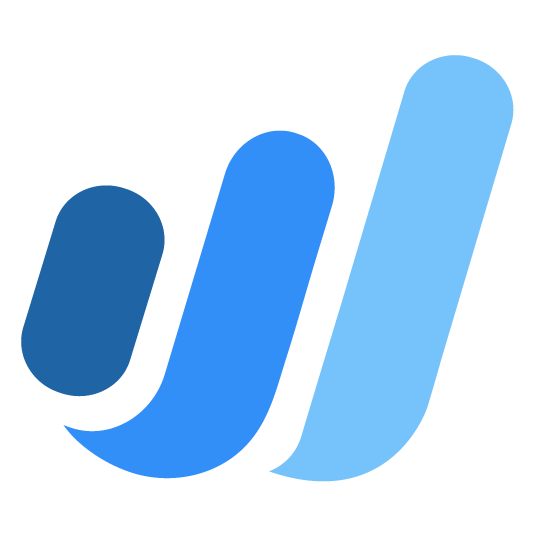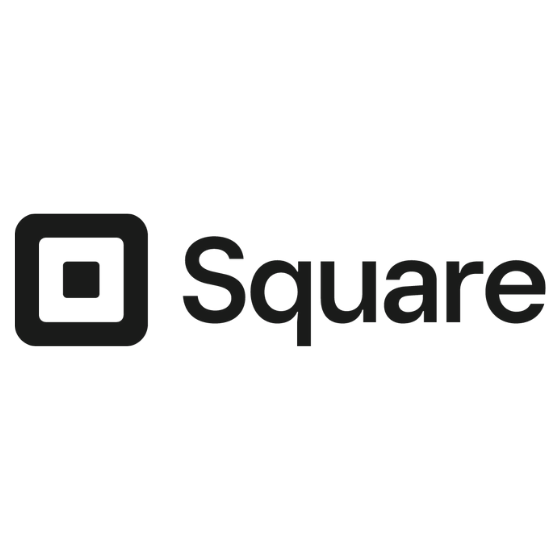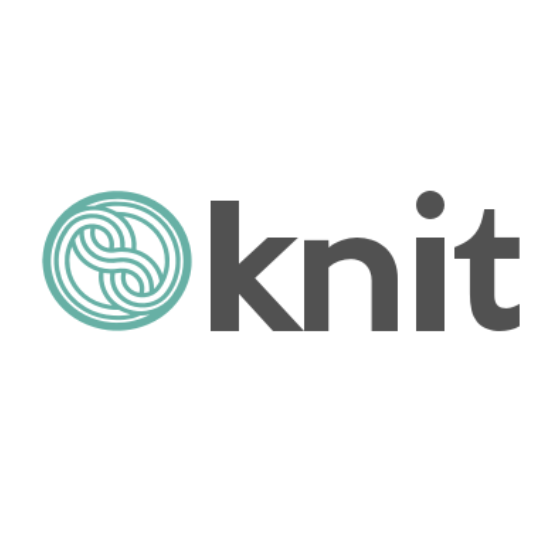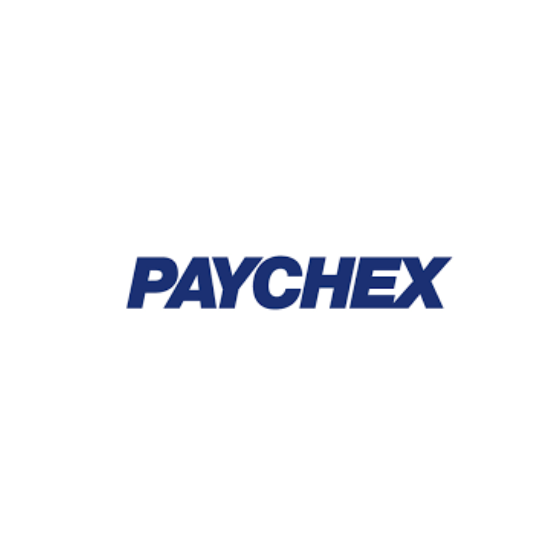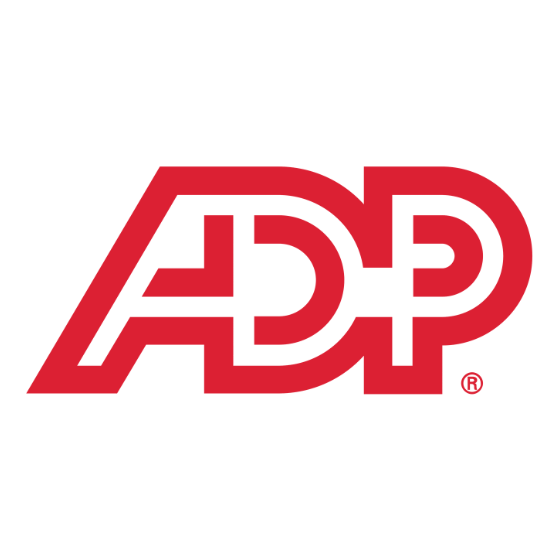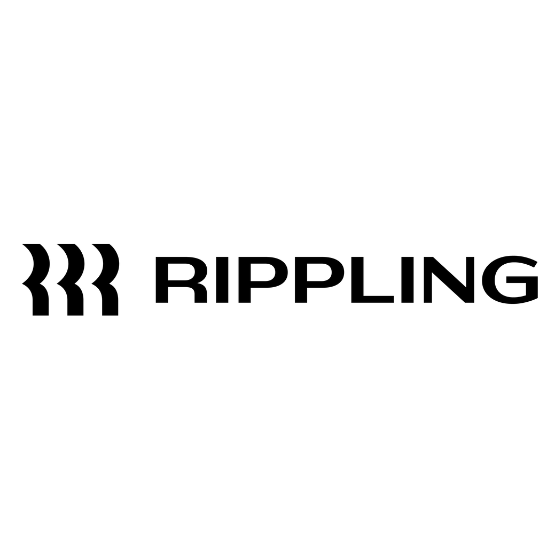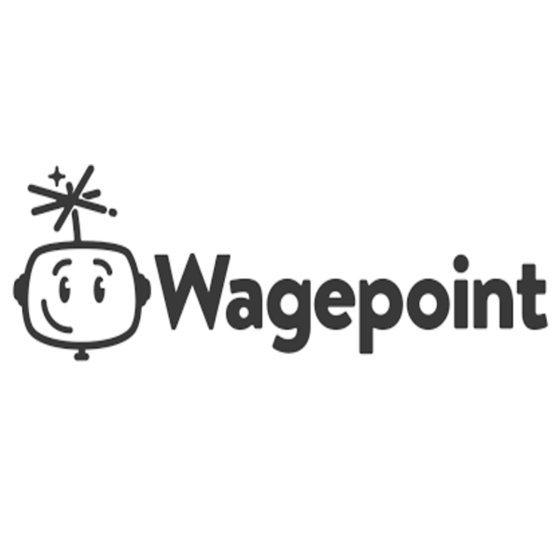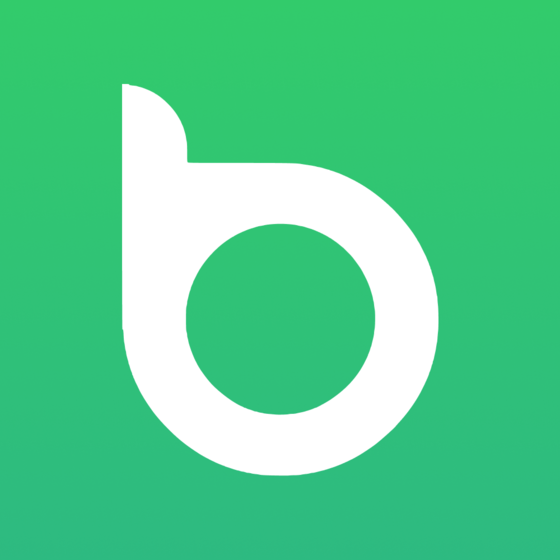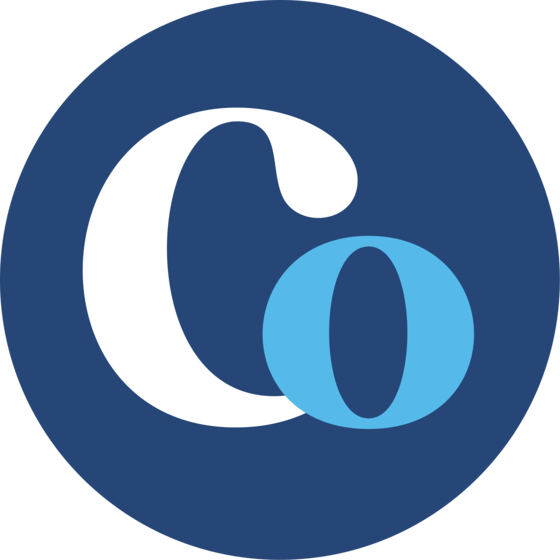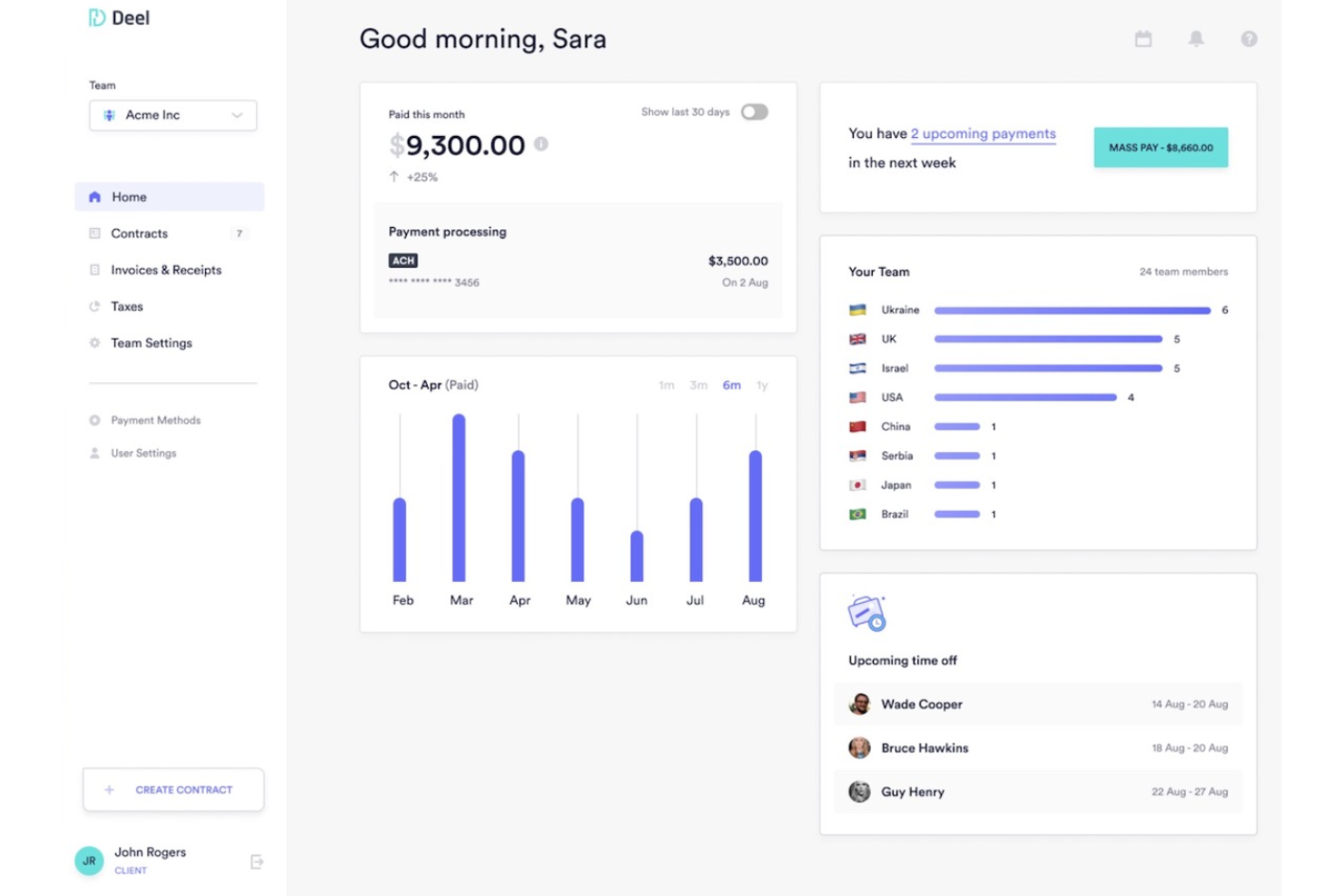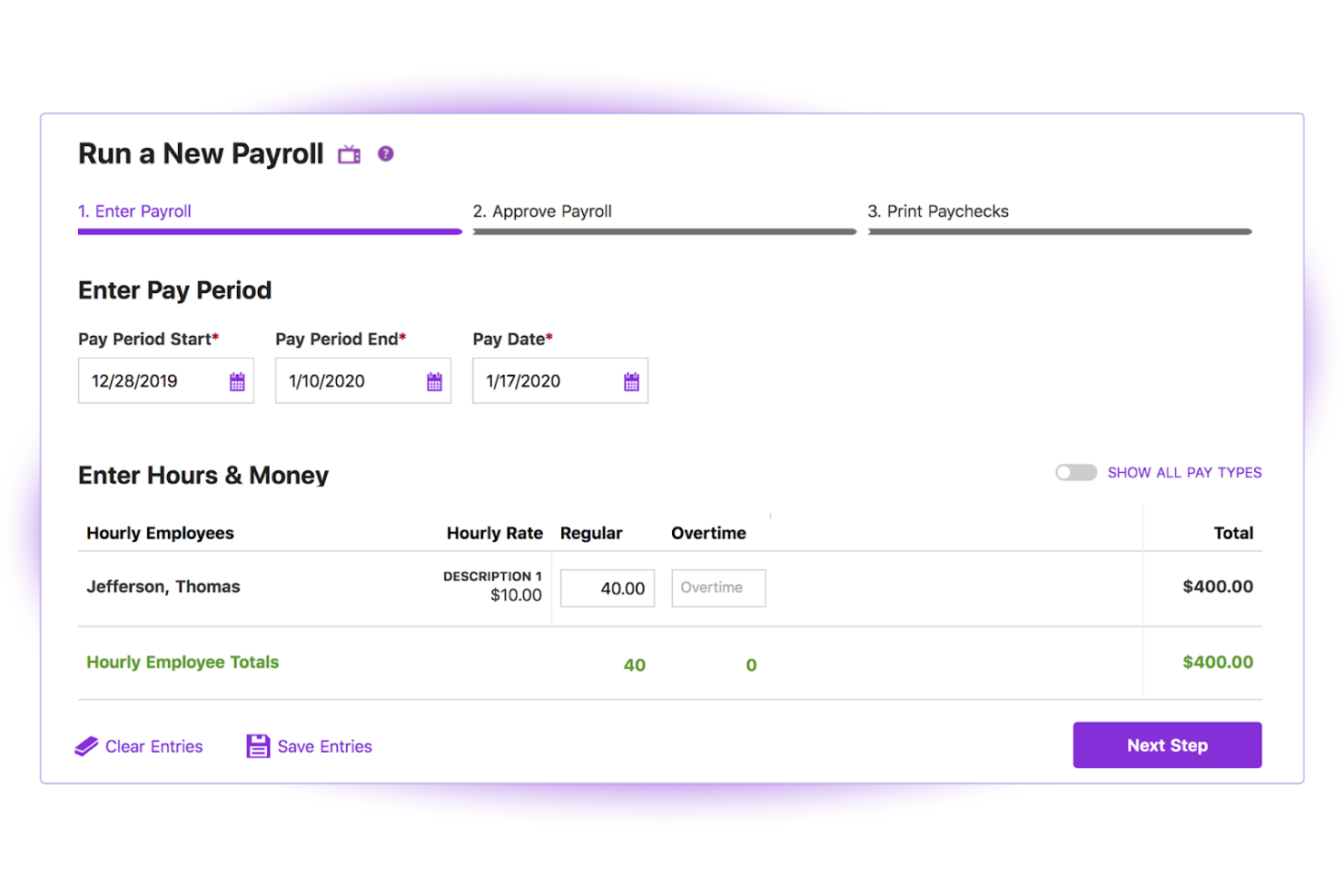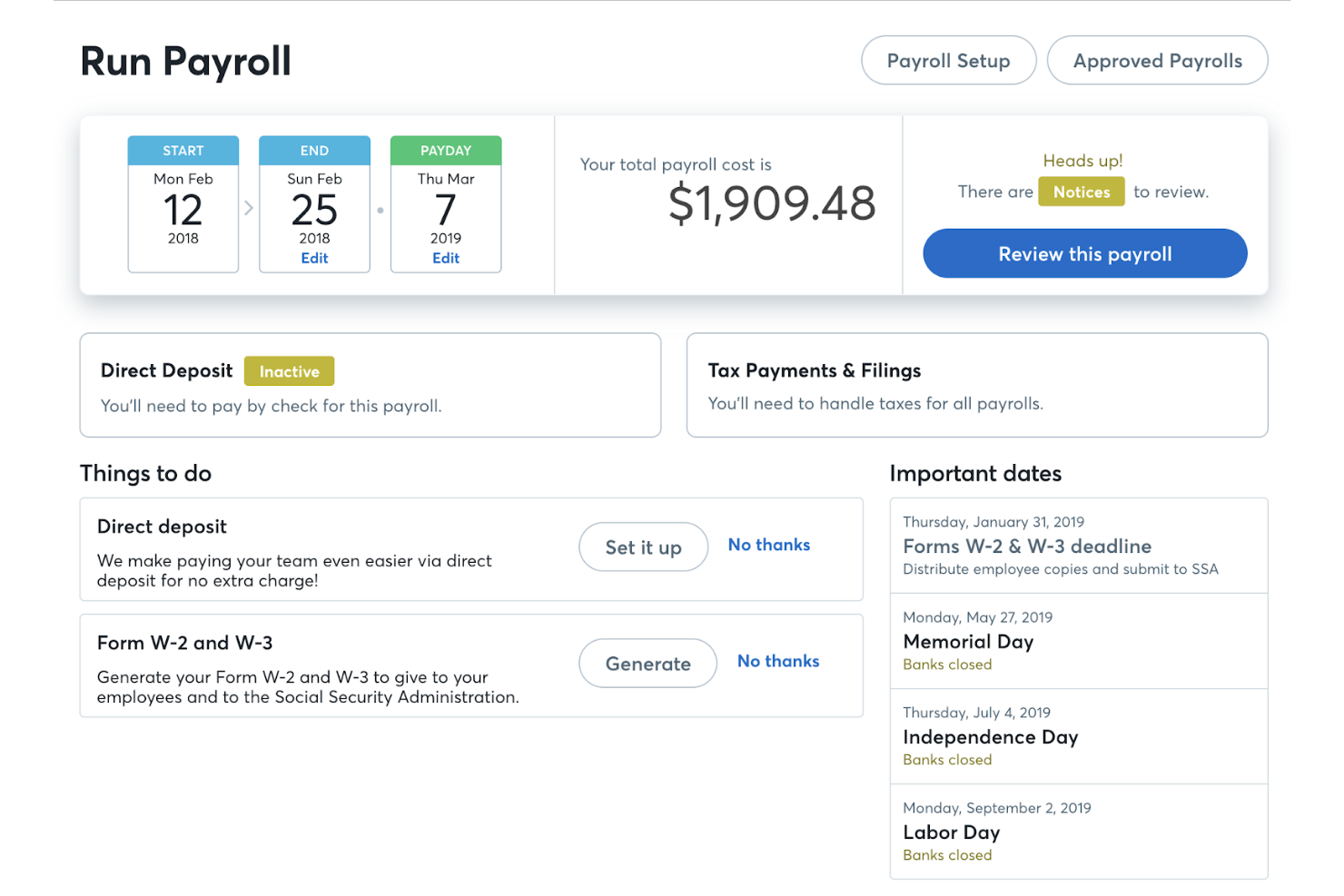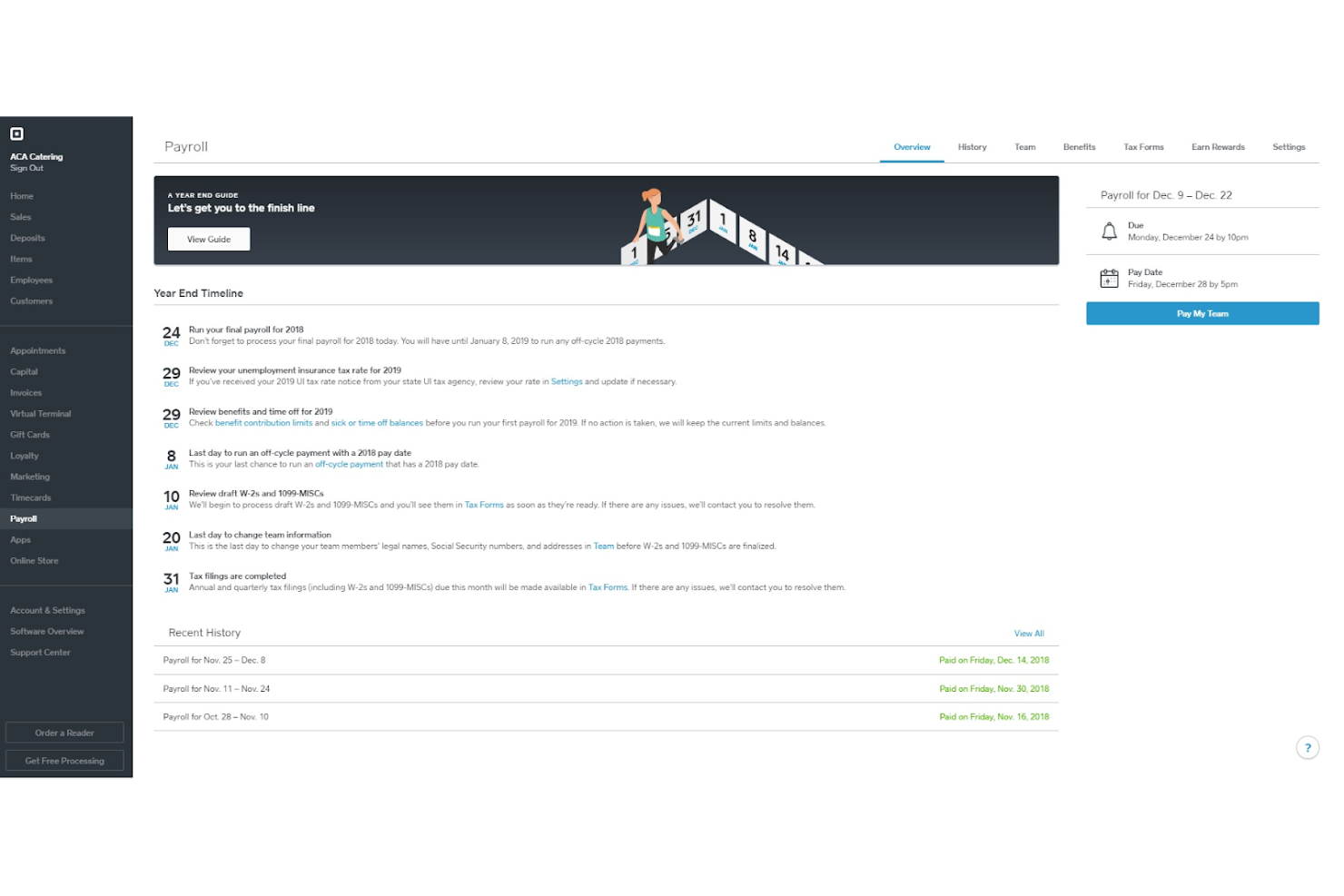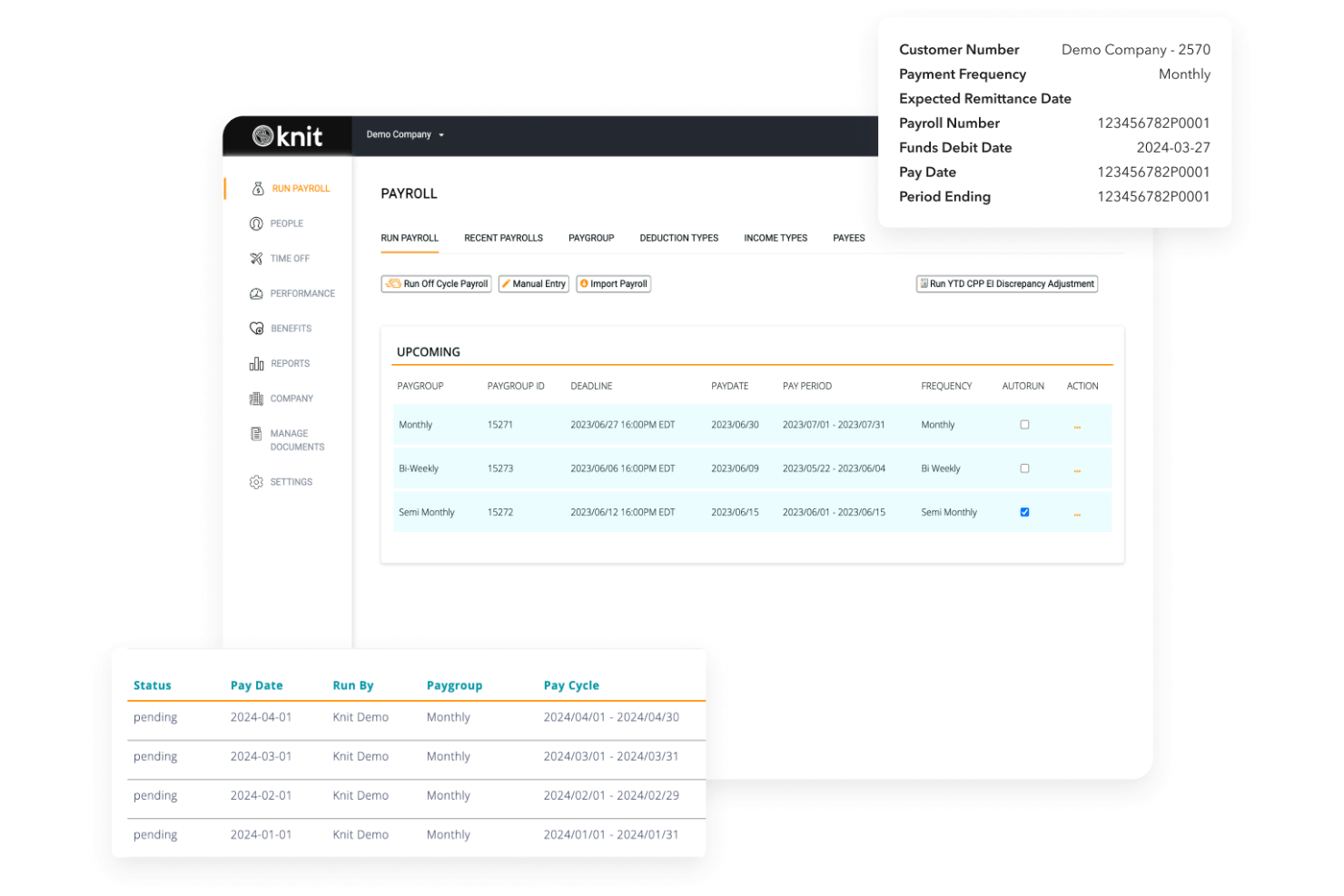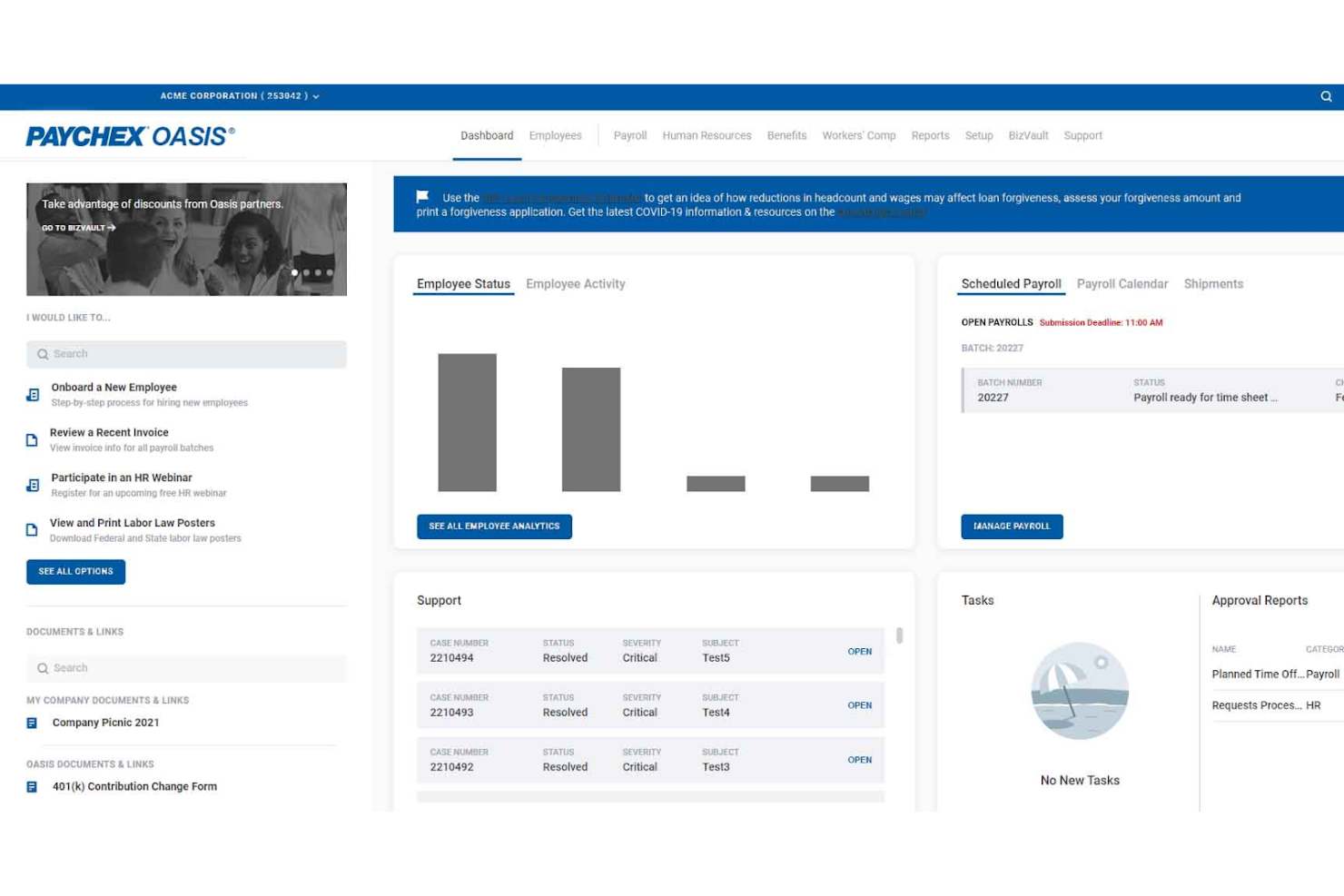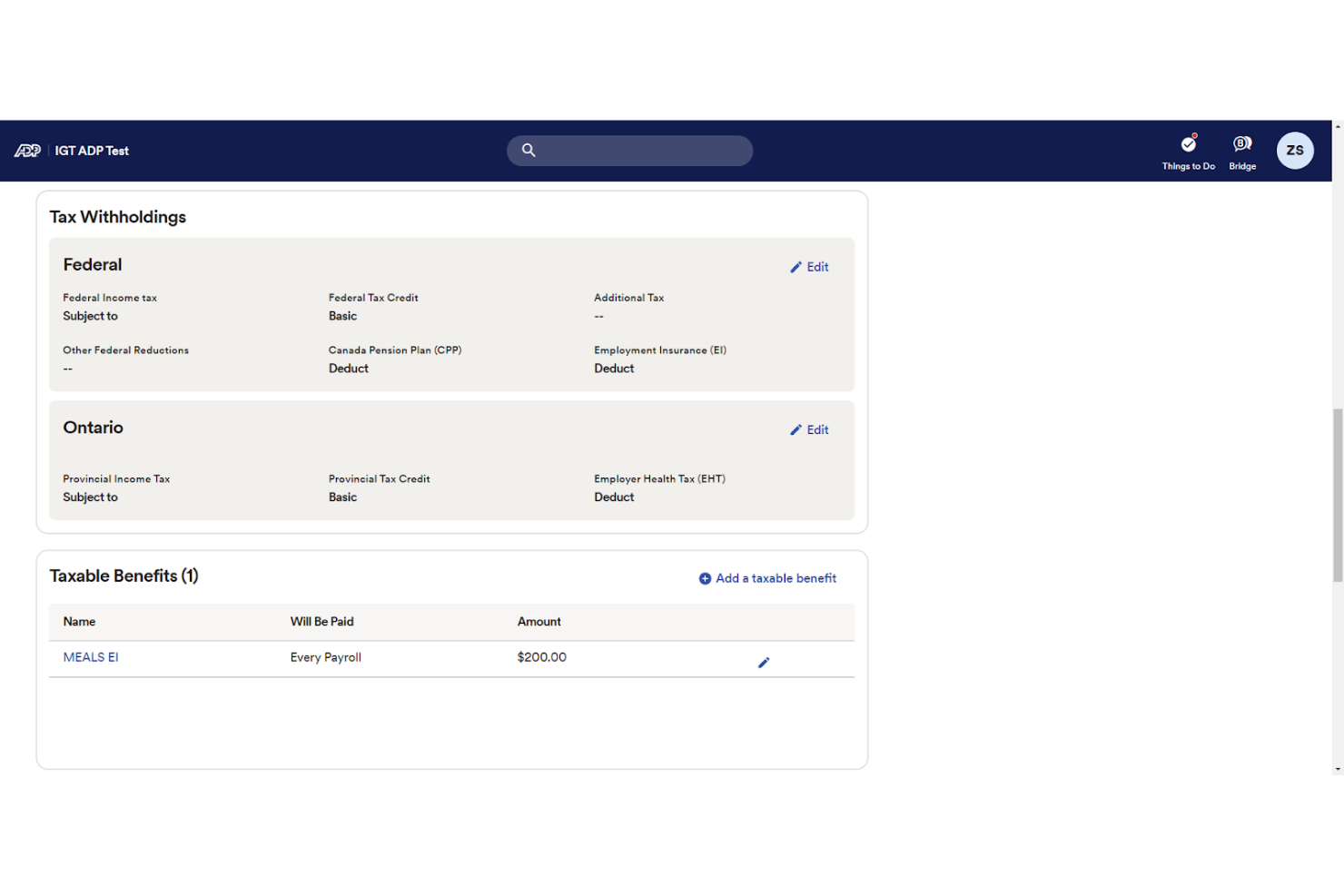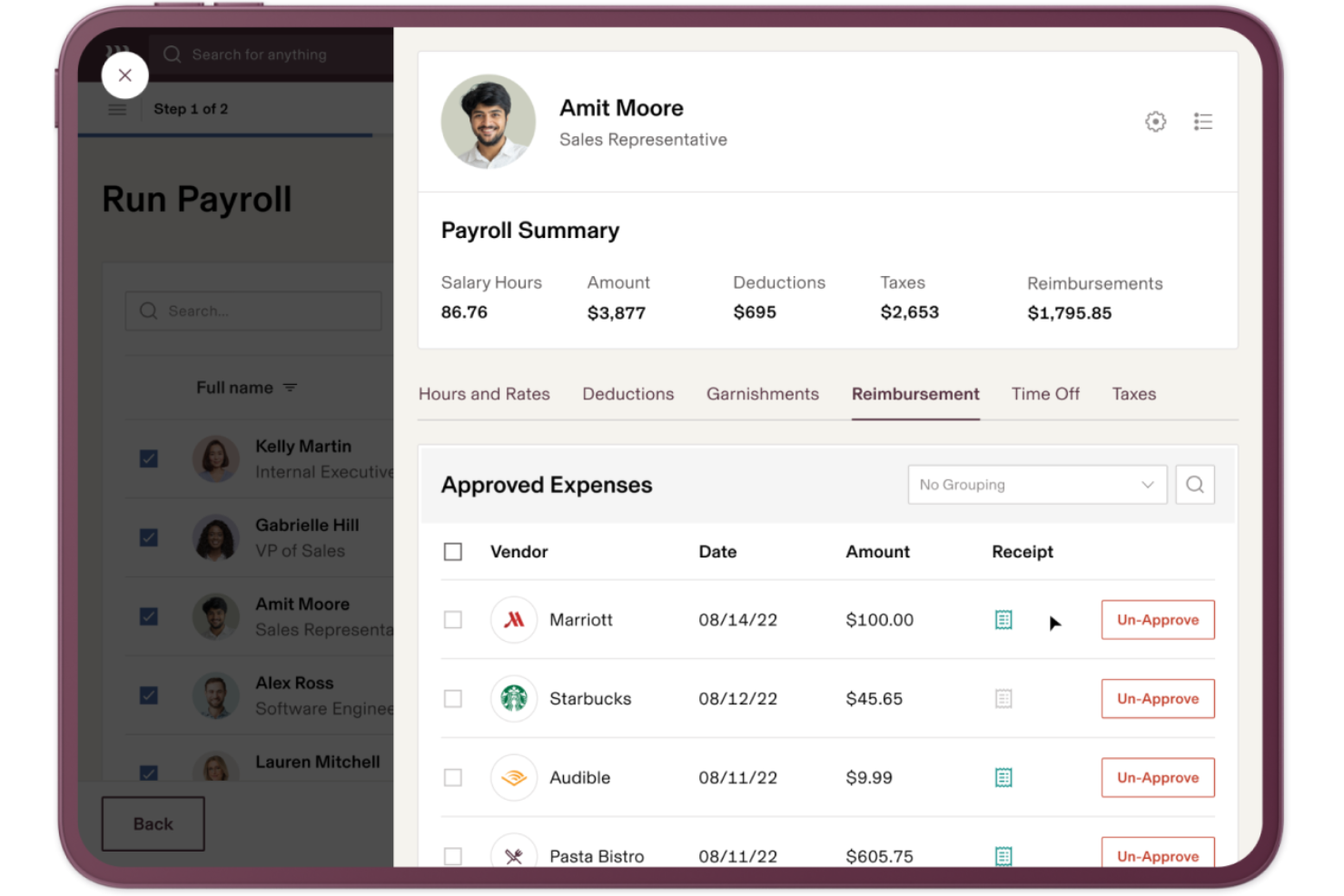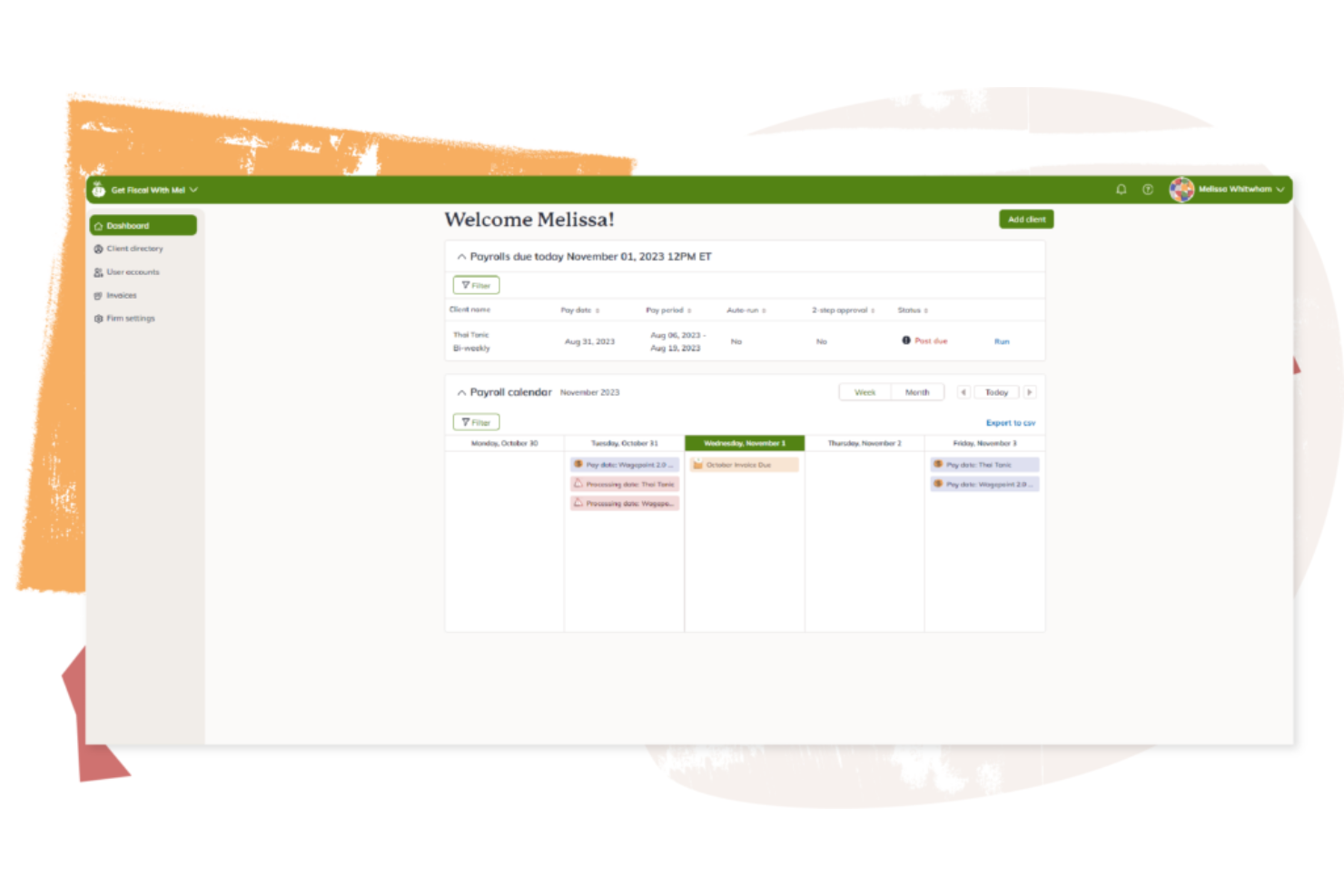Best Payroll Software for One Employee Shortlist
Here's my pick of the 10 best software from the 16 tools reviewed.
Talk through what you’re looking for. Get a custom shortlist based on your needs. No fees.
If you're searching for the best payroll software for one employee, you're likely a solopreneur, consultant, or small business owner trying to stay compliant without getting buried in tax forms or complex tools. The right payroll software will help you pay yourself or a team member accurately, file payroll taxes on time, generate pay stubs, and stay compliant with federal and state regulations—all without hiring a full HR team.
But with so many tools designed for larger companies, it can be hard to find something simple, affordable, and tailored for teams of one. I’ve thoroughly researched dozens of payroll systems, and in this guide, I’ll help you find easy-to-use payroll software that fits your business, saves you time, and removes the stress of getting payroll right.
Why Trust Our Software Reviews
We’ve been testing and reviewing HR software since 2019. As HR professionals ourselves, we know how critical and difficult it is to make the right decision when selecting software.
We invest in deep research to help our audience make better software purchasing decisions. We’ve tested more than 2,000 tools for different HR use cases and written over 1,000 comprehensive software reviews. Learn how we stay transparent, and take a look at our software review methodology.
Best Payroll Software for One Employee: Comparison Chart
This comparison chart summarizes pricing, trial, and demo details for my top payroll software selections for managing one employee to help you find the best software for your budget and business needs.
| Tool | Best For | Trial Info | Price | ||
|---|---|---|---|---|---|
| 1 | Best for global payroll and compliance | Free trial + demo available | From $29/month | Website | |
| 2 | Best for automated payroll calculations and tax filings | 90-day free trial | Pricing upon request | Website | |
| 3 | Best for affordable and flexible payroll options | 30-day free trial | From $4/employee/month + $17/month base fee | Website | |
| 4 | Best for integrated accounting and payroll features | 30-day free trial + free plan available | From $14/user/month | Website | |
| 5 | Best for integrations with POS systems | Not available | From $6/user/month + $35/month base fee | Website | |
| 6 | Best for Canadian small businesses and solo entrepreneurs | 30-day free trial | From $43/month | Website | |
| 7 | Best for responsive customer support | Free demo available | From $39/month + $5/employee/month | Website | |
| 8 | Best for compliance and support for small businesses | Free demo available | Pricing upon request | Website | |
| 9 | Best for global and US-based payroll | Free demo available | Pricing upon request | Website | |
| 10 | Best user-friendly payroll for small businesses | Free trial available | From $4/employee/month + $20/month | Website |
-

edays
Visit WebsiteThis is an aggregated rating for this tool including ratings from Crozdesk users and ratings from other sites.4.3 -

Boon
Visit WebsiteThis is an aggregated rating for this tool including ratings from Crozdesk users and ratings from other sites.4.7 -

ClearCompany
Visit WebsiteThis is an aggregated rating for this tool including ratings from Crozdesk users and ratings from other sites.4.6
Best Payroll Software for One Employee Reviews
Here are my detailed summaries of the best payroll software and services that are suitable for paying a single employee. For each system, I’ve included pros and cons, features, and notes on why I included them in this list.
Deel is a payroll and compliance platform that helps businesses and organizations with their global payroll needs. It is designed to simplify the complexities of hiring and paying remote employees anywhere in the world.
With a focus on compliance and ease of use, Deel allows businesses to onboard employees, manage payroll, and ensure adherence to local labor laws.
Why I picked Deel: Deel offers a good payroll solution for businesses hiring one employee due to its flat rate per-user pricing, making it cost-effective for small-scale employers.
Additionally, if you're looking to hire one person from anywhere in the world, Deel provides an efficient solution that handles all payroll-related tasks. Its platform ensures that even with just one employee, you can manage payroll in multiple currencies, automate payments, and maintain compliance with local regulations.
Standout features and integrations:
Features include automated payroll, multi-currency support, local benefits, tax handling, compliance documentation management, Employer of Record (EOR) services, in-house visa support, time off logging, and expense reports.
Integrations include Greenhouse, Hibob, Netsuite, Ashby, BambooHR, Expensify, Okta, OneLogin, Quickbooks, SCIM, Xero, Workday, and Workable.
Pros and cons
Pros:
- Automated payroll features
- Compliance with local labor laws
- In-house visa support
Cons:
- No mobile app available
- Potential learning curve for new users
Best for automated payroll calculations and tax filings
RUN by ADP is a payroll and HR platform tailored for small businesses of up to 49 employees, offering features such as automatic payroll tax calculation and filing, benefits and retirement deductions, and compliance with state and federal tax laws.
Why I picked RUN by ADP: The software automates payroll calculations, tax deductions, and filings, ensuring accuracy and compliance with federal, state, and local regulations. This is particularly beneficial for small business owners with one employee who may not have extensive payroll expertise, as it minimizes the risk of errors and potential penalties from tax authorities.
Standout features and integrations:
Features include direct deposit, an employee self-service portal, HR compliance support, time and attendance tracking, garnishment payment services, new hire reporting, retirement plan services, workers' compensation management, payroll and tax reports, and mobile app access.
Integrations include Quickbooks, Wave, Xero, ClockShark, Points North, TruSaic, Compy, Wex, Synerion, JazzHR, 7Shifts, Snappy Gifts, Absorb LMS, SmartRecruiters, and hundreds more.
Pros and cons
Pros:
- Robust mobile app
- Most HR functions are only available on higher-tier plans
- Setup can be complex
Cons:
- Good reporting capabilities
- Employee self-service feature
Patriot Payroll is an online payroll software designed for small businesses with 1 to 500 employees. It offers both basic and full-service payroll options, making it a versatile choice for a range of business needs.
Why I picked Patriot Payroll: I chose Patriot Payroll for its affordability and flexibility, which are crucial for small businesses with limited budgets. The software stands out for its straightforward pricing and its ability to scale with your business as it grows.
I believe it is best for affordable and flexible payroll options because it offers essential payroll features at a competitive price, making it accessible for small businesses.
Standout features and integrations:
Features include unlimited payroll runs, free 2-day direct deposit for qualified customers, multiple pay rates, and a free employee portal. It also offers comprehensive payroll reports, customizable hours, money, deductions, and time-off accruals.
Integrations are available with QuickBooks Desktop, QuickBooks Online, and its own accounting software, providing seamless data transfer and reducing manual entry errors.
Pros and cons
Pros:
- Free setup assistance
- Unlimited payroll runs
- Affordable pricing
Cons:
- No mobile app
- Limited to US-based companies
Wave offers payroll software designed for small businesses, with integrated features to help users manage payroll and accounting tasks. It simplifies payroll processes with features like direct deposit, tax calculations, and employee self-service.
Why I picked Wave: I included Wave in this list because of its integrated accounting software, which is helpful for small businesses that need to manage both payroll and accounting tasks efficiently.
Wave is best for small businesses needing integrated accounting and payroll software because it connects payroll with Wave's accounting software, reducing manual bookkeeping and ensuring accurate financial records.
Standout features and integrations:
Features include automatic tax remittances, direct deposit, and employee access to pay stubs and tax forms. Outside of its payroll abilities, Wave also offers invoicing, bookkeeping, and cash flow management tools, all of which are available for free.
If you scale up to their paid plan, Wave platform also offers receipt scanning and direct bank account and credit card connections for automatic transaction import, which simplifies bookkeeping.
Integrations include Wave Accounting, Wave Invoicing, Wave Payments, QuickBooks, Xero, FreshBooks, and PayPal.
Pros and cons
Pros:
- Employee self-service
- Automatic tax filings
- Integrated accounting
Cons:
- No mobile app
- Limited to certain states
Square Payroll is a payroll software designed for small businesses, offering transparent pricing with no hidden fees or long-term commitments.
It helps organizations manage payroll for employees including tax filings, and payments, as well as time tracking, shifts, overtime, commission, bonuses, and tips. Plus, it can also manage independent contractor payments too.
Why I picked Square Payroll: I chose Square Payroll for its ability to integrate with POS systems, which is crucial for businesses that rely heavily on point-of-sale transactions such as retail, hospitality, or other service-based businesses. This integration ensures that payroll processes are streamlined and synchronized with sales data, reducing manual entry and errors.
For those reasons, I believe Square Payroll stands out for its ability to handle both payroll and POS needs efficiently.
Standout features and integrations:
Features include automated tax filings, direct deposit, time tracking, and management of multiple pay rates, commissions, bonuses, and tips. It also provides next business day payroll with a Square balance or checking account and integrates fully with the Square ecosystem, including Square Team Management.
Integrations include Square POS, Square Appointments, Square Invoices, Square Online Store, QuickBooks, Xero, Gusto, ADP, Paychex, and Patriot Software.
Pros and cons
Pros:
- Next business day payroll
- Automated tax filings
- Easy POS integration
Cons:
- No free plan available
- Base fee required
Knit is a comprehensive payroll and HR software designed specifically for Canadian small businesses and solo entrepreneurs. It offers automated payroll calculations, direct deposits, tax filings, and HR management.
Why I picked Knit: I chose Knit for its ability to combine payroll processing with HR functionalities and services that are tailored to Canadian small businesses and Canadian regulations. I believe Knit is best for Canadian small businesses and solo entrepreneurs because it simplifies compliance and administrative tasks, allowing businesses to focus on growth.
Standout features and integrations:
Features include automated payroll calculations, direct deposits, tax filings, HR management, time and attendance tracking, and compliance management.
Integrations include QuickBooks Online, Xero, and other popular accounting tools.
Pros and cons
Pros:
- User-friendly interface
- Automated tax filings
- Comprehensive payroll and HR integration
Cons:
- No free plan
- Limited to Canadian businesses
Paychex offers a comprehensive suite of payroll and HR services tailored to small businesses. It simplifies payroll processing, tax payments, and employee self-service through an easy-to-use platform.
Why I picked Paychex: I chose Paychex for its robust integration of payroll and HR services, which stands out among other payroll solutions. The seamless integration allows small businesses to manage payroll, hiring, and benefits in one platform, making it highly efficient and user-friendly.
Paychex is also known for its responsive customer support which is available 24/7 via phone or live chat, making them a good choice for users who want extra guidance.
Standout features and integrations:
Features include easy payroll setup, automated payroll taxes, 24/7 support, and a mobile app for employers and employees.
Integrations are available with many popular business tools, including QuickBooks, Xero, Sage, BambooHR, Deputy, Oracle, Xero, Aetna, American Funds, and Bank of America.
Pros and cons
Pros:
- 24/7 support
- Automated tax payments
- Offers comprehensive HR services
Cons:
- Limited to US-based businesses
- Additional HR features are only available as add-ons
ADP offers comprehensive payroll services tailored for small businesses, ensuring compliance and providing robust support. It automates payroll tasks, including tax calculations and filings, to save time and reduce errors.
Why I picked ADP: I chose ADP for its strong focus on compliance and support, which are critical for small businesses. ADP stands out due to its extensive experience and resources dedicated to helping businesses navigate complex payroll regulations.
Standout features and integrations:
Features include automated tax calculations, direct deposit, and compliance tools.
Integrations are available with various HR and accounting systems, including QuickBooks, Xero, and more.
Pros and cons
Pros:
- Scalable solutions
- Strong customer support
- Comprehensive compliance tools
Cons:
- Limited customization options
- Higher cost for additional features
Rippling is a versatile payroll software solution that caters to businesses of all sizes, including those with just one employee. Its comprehensive features are designed to handle payroll processing, HR management, and expense management efficiently, making it an ideal choice for small businesses and startups.
Why I picked Rippling: I picked Rippling because of its global payroll capabilities, which allow you to pay employees anywhere in the world. This feature is crucial for businesses with remote workers or contractors in different countries.
Additionally, Rippling offers US payroll processing, ensuring accurate and easy payroll management for US-based employees. These features help you maintain compliance and accuracy in your payroll operations.
Standout features and integrations:
Features include a contractor payment feature, which simplifies payments to contractors globally. It also has expense management, which offers tools for managing company spending and enforcing expense policies.
Integrations include Slack, Checkr, Google, Zoom, Asana, Salesforce, Microsoft 365, Guideline, GitHub, Carta, Jira, and Datadog.
Pros and cons
Pros:
- Strong integration capabilities
- The platform automates HR and payroll processes
- Extensive global reach
Cons:
- Some users feel that the reporting features could be more robust
- The extensive features may overwhelm those unfamiliar with the platform
Wagepoint is a payroll software designed for small businesses, offering features such as one-click payroll, automated tax handling, and an online employee portal. It is known for its user-friendly interface and flexibility, making payroll processing easy for both employees and contractors.
Why I picked Wagepoint: I chose Wagepoint for its simplicity and ease of use, which stands out among payroll software options. Its user-friendly interface and comprehensive support make it ideal for small businesses.
I believe Wagepoint is best for user-friendly payroll for small businesses because it offers intuitive features that streamline payroll processing, making it accessible even for those with limited payroll experience.
Standout features and integrations:
Features include one-click payroll, automated tax handling, and an online employee portal. These features ensure that payroll processing is quick and efficient, reducing the administrative burden on small business owners.
Integrations include QuickBooks, Xero, TSheets, Deputy, 7Shifts, Track, and other time-tracking applications, allowing for seamless data transfer and enhanced functionality.
Pros and cons
Pros:
- Comprehensive support
- Automated tax handling
- Easy to use
Cons:
- Occasional errors when you run payroll
- Limited advanced features
Other Payroll Software for One Employee
- Payworks
For Canadian businesses needing compliance support
- Paylocity
For comprehensive payroll and HR management
- QuickBooks Payroll
For automated tax payments and direct deposit
- OnPay
For flexible payroll and tax automation
- Agile Hero
For remote payroll processing
- Gusto
For all-in-one payroll and HR solutions
Related HR Software Reviews
If you still haven't found what you're looking for here, check out these other related tools that we've tested and evaluated:
- HR Software
- Payroll Software
- Recruiting Software
- Employer of Record Services
- Applicant Tracking Systems
- Workforce Management Software
Selection Criteria for Payroll Software for One Employee
Selecting payroll software for one employee involves evaluating the features and functionalities that serve this specific use case, including typical software buyer needs, and pain points. As a software-testing expert who has personally tried and researched many different payroll tools, I focused on the following criteria to create this list:
Core Payroll Software Functionalities (25% of total score): To be considered for inclusion in this list, each solution had to fulfill these common use cases first:
- Calculating wages and deductions
- Generating pay stubs
- Direct deposit capabilities
- Tax filing and compliance
- Year-end reporting
Additional Standout Features (25% of total score): To help me find the best software out of numerous available options, I also kept a keen eye out for unique features, including the following:
- Integration with accounting software
- Mobile app access
- Customizable reporting
- Automated reminders for tax deadlines
- Self-service portals for employees
Usability (10% of total score): To evaluate the usability of each system, I considered the following:
- Intuitive dashboard design
- Simple navigation menus
- Drag-and-drop functionality for scheduling
- Clear and concise user interface
- Minimal learning curve
Onboarding (10% of total score): To get a sense of each software provider's customer onboarding process, I considered the following factors:
- Availability of training videos
- Interactive product tours
- Pre-built templates
- Chatbots for instant help
- Webinars for in-depth training
Customer Support (10% of total score): To evaluate the level of customer support each vendor offered, I considered the following:
- 24/7 support availability
- Multiple support channels (phone, email, chat)
- Knowledge base and FAQs
- Response time and resolution efficiency
- Personalized support options
Value for Price (10% of total score): To gauge the value of each software, I considered the following factors:
- Transparent pricing models
- Cost-effectiveness for small businesses
- Free trial or demo availability
- No hidden fees
- Competitive pricing compared to similar tools
Customer Reviews (10% of total score): Evaluating customer reviews is the final element of my selection process, which helps me understand how well a product performs in the hands of real users. Here are the factors I considered:
- Overall satisfaction ratings
- Feedback on ease of use
- Comments on customer support quality
- Reviews on feature effectiveness
- User testimonials on value for money
Using this assessment framework helped me identify the software that goes beyond basic requirements to offer additional value through unique features, intuitive usability, smooth onboarding, effective support, and overall value for price.
How to Choose Payroll Software for One Employee
As you work through your own unique software selection process, keep the following points in mind:
- Ease of Use: The software should be user-friendly and intuitive, especially if you’re managing payroll yourself in-house.
- Cost-Effectiveness: Ensure the software fits within your budget while offering the necessary features. Some payroll providers also offer contractor-only plans, which are an affordable option for small businesses.
- Tax Compliance: The software should automatically calculate and file payroll taxes to ensure compliance with federal, state, and local regulations.
- Integration Capabilities: The ability to integrate with other business tools like accounting software can streamline your operations and cut down on data exporting or manual data entry requirements.
- Scalability: Choose software that can grow with your business easily. You’ll want to keep your options open in case you need to onboard more new hires in the near future.
Trends in Payroll Software for 2025
The landscape of payroll software is evolving rapidly, especially for small businesses and sole proprietors. Below, I’ve summarized several key trends that are emerging and shaping the future of payroll management for single-employee setups and larger workforces:
- AI and Automation in Payroll Processing: AI and automation are revolutionizing payroll processing by streamlining routine tasks and enhancing accuracy. Automated data entry, tax calculations, and compliance management reduce errors and free up valuable time for strategic activities. This trend is crucial as it makes payroll functions faster, more cost-effective, and less prone to human error.
- Real-Time Payroll Analytics and Insights: The demand for real-time insights into payroll data is increasing. Modern payroll software now incorporates analytics tools that offer instant access to critical payroll metrics. This empowers businesses to make data-driven decisions, track labor costs, and adapt payroll strategies promptly, enhancing overall financial planning and resource allocation.
- Integration with Accounting Software: Integrating payroll software with accounting systems is becoming a must-have feature. This integration allows for seamless data transfer between systems, eliminating manual data entry and reducing errors. It provides a comprehensive view of financials, making it easier to track expenses and stay on top of budgeting.
- Mobile Payroll Solutions: As remote work becomes more prevalent, the demand for mobile payroll solutions is rising. Employees can now view their pay stubs, make changes to personal information, and submit time-off requests through mobile apps. This flexibility is essential for maintaining efficiency in non-traditional work settings.
- Financial Wellness Programs Integrated with Payroll: Recognizing the importance of employee well-being, financial wellness programs are being integrated with payroll systems. These programs offer tools for budgeting, saving, and investment planning, helping employees manage their financial resources better. This integration promotes financial literacy and stability, contributing to employee satisfaction and retention.
Collectively, these trends emphasize automation, real-time analytics, integration, mobility, and employee well-being, making payroll management more efficient and effective overall.
What is Payroll Software for One Employee?
Payroll software for one employee is a digital tool that automates payroll processing for businesses with just one worker. It calculates wages, withholds taxes, files payroll taxes, and helps ensure legal compliance—without needing a full HR team.
Freelancers, solopreneurs, and small business owners use this software to save time, reduce errors, and stay compliant with labor laws—especially when manual payroll feels overwhelming.
Features of Payroll Software for One Employee
When managing payroll for a single employee, it's essential to choose software that simplifies the process and ensures accuracy. Here are the most important features to look for in payroll software designed for one employee:
- User-Friendly Interface: A simple and intuitive interface makes it easy to navigate and manage payroll tasks without extensive training.
- Automated Calculations: The software should automatically calculate taxes, deductions, and net pay to reduce errors and save time.
- Direct Deposit: This feature allows you to pay your employee directly into their bank account, ensuring timely and secure payments.
- Tax Filing Assistance: The software should help you prepare and file payroll taxes, ensuring compliance with federal and state regulations.
- Customizable Pay Schedules: Flexibility in setting pay schedules allows you to align payroll with your business needs and employee preferences.
- Reporting Capabilities: Access to detailed payroll reports helps you track expenses and maintain accurate records for audits and financial planning.
- Employee Self-Service: This feature allows your employee to access their pay stubs and tax forms online, reducing administrative workload.
- Compliance Management: The software should stay updated with the latest labor laws and tax regulations to ensure your payroll practices are compliant.
- Customer Support: Reliable customer support is crucial for resolving any issues or questions that arise during payroll processing.
- Integration with Accounting Software: Seamless integration with your existing accounting software helps maintain accurate financial records and simplifies bookkeeping.
Choosing payroll software with these features ensures that managing payroll for a single employee is efficient, accurate, and compliant with regulations. This allows you to focus on other important aspects of your business.
Benefits of Payroll Software for One Employee
Payroll software can be a valuable tool even for businesses with just one employee. It simplifies payroll processes, ensures compliance, and saves time, making it an essential investment for small businesses. Here are several benefits you can expect to gain by using payroll software for a single employee:
- Improved Accuracy: Payroll software reduces the risk of human error, ensuring that calculations for wages, taxes, and deductions are precise.
- Increased Time-Saving: Automating payroll tasks frees up time that can be better spent on other business activities, increasing overall productivity.
- Improved Compliance: The software helps ensure that all payroll processes comply with current tax laws and regulations, reducing the risk of legal issues.
- Reliable Record-Keeping: It provides a reliable way to store and manage payroll records, making it easy to access historical data when needed.
- More Cost-Effective: Investing in payroll software can be more economical than hiring a payroll service or dedicating significant time to manual payroll processing.
Using payroll software for a single employee can bring significant advantages, from improved accuracy to cost savings. It allows small business owners to focus on growing their business while ensuring that payroll is handled efficiently and correctly.
If you're running a solo operation and looking for additional software to improve your operations and set your business up for long term growth, you'll find other useful options in my list of the best HR software for start-up companies too.
Costs & Pricing for Payroll Software
When considering payroll software for a single employee, it's essential to understand the different pricing models and plans that are available. Below, I’ve summarized the most common plan options for payroll software, in general. However, please note that if you are only paying one employee, you can most likely make due with a Basic plan to start.
Plan Comparison Table for Payroll Software
| Plan Type | Average Price | Common Features |
| Free Plan | $0 | Basic payroll processing, direct deposit, employee self-service, and tax calculations |
| Basic Plan | $17/month + $4/employee | Paychecks, direct deposit, printable W-2s, setup, and expert support |
| Standard Plan | $39/month + $6/employee | Full-service payroll, tax filing, employee self-service, and direct deposit |
| Premium Plan | $80/month + $12/employee | Advanced HR tools, next-day direct deposit, PTO management, and performance tracking |
| All-Inclusive Plan | $40/month + $6/employee | Full-service payroll, onboarding, support, and unlimited payroll runs |
When selecting a payroll software plan, consider the specific needs of your business and the features that will provide the most value. Free plans are suitable for minimal needs, while premium plans offer extensive features for growing businesses. Evaluate each plan's features and pricing to find the best fit for your payroll requirements.
Payroll Software for One Employee FAQs
Here are some answers to frequently asked questions you may have about payroll software and how it works:
How much does payroll software typically cost for one employee?
The cost of payroll software for one employee can vary widely. Basic plans can start as low as $10 per month, while more comprehensive solutions may cost upwards of $40 per month. Some providers also offer pay-per-use models, which can be cost-effective for very small businesses.
Can payroll software handle tax filings for a single employee?
Yes, most payroll software can handle tax filings for a single employee. Software like Gusto and QuickBooks Payroll automatically calculate, file, and pay federal, state, and local payroll taxes, ensuring compliance with tax regulations.
Is it easy to set up payroll software for just one employee?
Setting up payroll software for one employee is generally straightforward. Most platforms offer step-by-step guides and customer support to help you through the process. You’ll need to input basic information such as employee details, pay rates, and tax information.
Can I switch payroll software easily if I only have one employee?
Switching payroll software with only one employee is usually a simple process. Most payroll software providers offer support for data migration and setup. Ensure you have all necessary employee and payroll data ready for a smooth transition.
Do I need customer support for payroll software if I only have one employee?
Even if you only have one employee, having access to customer support can be crucial. Issues like tax filings, compliance questions, or software glitches can arise, and having reliable customer support can help resolve these problems quickly.
What’s Next?
To remain up to date on all the latest in people management, subscribe to our newsletter for leaders and managers. You'll receive insights and offerings tailored to leaders and HR professionals straight to your inbox.


